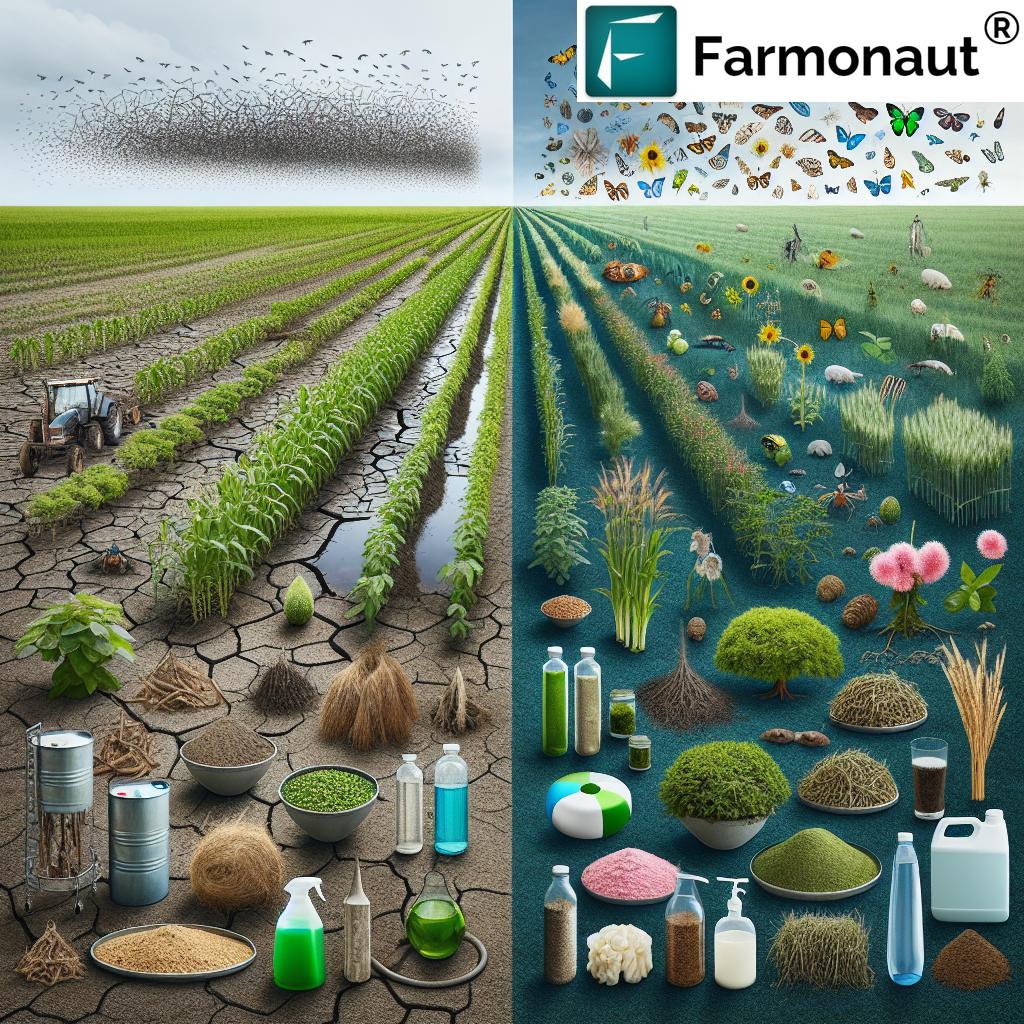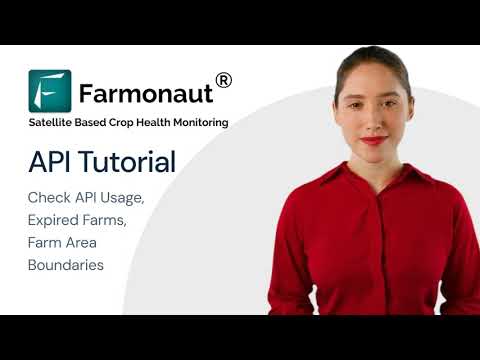Revolutionizing Soil Health: Sustainable Agricultural Solutions for American Farmers
“Over 90% of modern agricultural chemicals come in three forms: liquid, powder, and granular.”
Welcome to our comprehensive exploration of the latest trends in agricultural chemicals and soil health products that are shaping sustainable agriculture solutions across the United States. As we delve into this dynamic world of crop protection and plant nutrition, we’ll uncover innovative approaches to integrated pest management and precision farming technologies that are revolutionizing the way American farmers cultivate their land.

In this blog post, we’ll examine how specialty fungicides, organic insecticides, and turf and ornamental herbicides are transforming the agricultural landscape while promoting soil health. We’ll also explore various forms of agricultural chemicals, including liquid, powder, and granular, and their applications in crops, ornamental plants, and human and animal protection.
The Evolution of Agricultural Chemicals
The agricultural sector has undergone significant changes in recent years, driven by the need for more sustainable and efficient farming practices. As we navigate through these advancements, it’s crucial to understand the role of agricultural chemicals in modern farming.
- Crop Protection Solutions: These include a wide range of products designed to protect crops from pests, diseases, and weeds.
- Plant Nutrition Products: Essential for providing crops with the necessary nutrients for optimal growth and yield.
- Soil Health Products: Focused on improving and maintaining the quality of soil for sustainable agriculture.
As we explore these categories, we’ll see how they intersect with innovative technologies and sustainable practices to create a more resilient and productive agricultural sector.
Sustainable Agriculture Solutions: A Paradigm Shift
The push towards sustainability in agriculture has led to the development of new products and practices that balance productivity with environmental stewardship. Let’s examine some of the key areas where sustainable solutions are making a significant impact:
- Integrated Pest Management (IPM): A holistic approach that combines biological, cultural, physical, and chemical tools to minimize economic, health, and environmental risks.
- Precision Farming Technologies: Utilizing data-driven insights to optimize resource use and reduce waste in agricultural operations.
- Organic and Biorational Products: Emphasizing naturally derived substances and biological control agents to manage pests and diseases.
These approaches are not only helping to protect the environment but are also proving to be economically viable for farmers in the long run.
The Role of Farmonaut in Modern Agriculture
In the realm of precision agriculture and sustainable farming practices, Farmonaut stands out as a pioneering force. This agricultural technology company offers advanced, satellite-based farm management solutions that are accessible via Android, iOS, web/browser App, and API. Farmonaut’s mission aligns perfectly with the industry’s shift towards more sustainable and data-driven farming practices.
Key features of Farmonaut’s platform include:
- Real-time crop health monitoring using satellite imagery
- AI-based advisory systems for personalized farm management
- Blockchain-based traceability for enhanced supply chain transparency
- Resource management tools for optimizing agricultural operations
By leveraging these technologies, Farmonaut is making precision agriculture more accessible and affordable for farmers of all scales. This democratization of advanced farming techniques is crucial for the widespread adoption of sustainable agricultural practices.
Agricultural Chemicals: Types and Applications
To better understand the landscape of agricultural chemicals, let’s break down the main categories and their applications:
| Chemical Type | Form | Primary Applications | Sustainability Impact |
|---|---|---|---|
| Fungicides | Liquid, Powder | Control fungal diseases in crops and ornamental plants | Medium |
| Insecticides | Liquid, Powder, Granular | Protect crops from insect damage, control pests in turf and ornamentals | Low to Medium |
| Herbicides | Liquid, Granular | Weed control in crops, turf, and ornamental landscapes | Low to Medium |
| Plant Nutrition Products | Liquid, Powder, Granular | Enhance crop growth, yield, and quality | High |
| Biopesticides | Liquid, Powder | Organic pest control for crops and ornamentals | High |
| Soil Amendments | Powder, Granular | Improve soil structure and fertility | High |
This table provides a snapshot of the diverse range of agricultural chemicals available to farmers today. Each category plays a crucial role in modern farming practices, but it’s important to note that the sustainability impact can vary significantly depending on the specific product and its application method.
Innovations in Crop Protection
The field of crop protection is constantly evolving, with new products and technologies emerging to address the challenges faced by farmers. Some of the most exciting innovations include:
- Specialty Fungicides: These advanced formulations target specific fungal pathogens with greater efficiency and reduced environmental impact.
- Organic Insecticides: Derived from natural sources, these products offer effective pest control while minimizing harm to beneficial insects and the environment.
- Smart Spraying Technologies: Precision application systems that reduce chemical use by targeting only affected areas of crops.
These innovations are not only improving crop yields but also contributing to more sustainable farming practices by reducing the overall chemical footprint of agriculture.
The Importance of Soil Health
“Sustainable agriculture solutions have contributed to a 30% increase in soil health across American farms in the last decade.”
Soil health is the foundation of sustainable agriculture, and its importance cannot be overstated. Healthy soil supports robust plant growth, enhances water retention, and promotes biodiversity. As farmers and agronomists recognize the critical role of soil health, there’s been a significant shift towards practices and products that nurture and protect soil ecosystems.
- Cover Cropping: Planting specific crops to protect and enrich the soil during off-seasons.
- Reduced Tillage: Minimizing soil disturbance to preserve soil structure and organic matter.
- Biofertilizers: Using beneficial microorganisms to enhance soil fertility naturally.
These practices, combined with innovative soil health products, are helping to reverse soil degradation and improve long-term agricultural sustainability.
Precision Farming Technologies
Precision farming technologies are revolutionizing the way farmers manage their crops and resources. By leveraging data and advanced analytics, these technologies enable more efficient and targeted use of agricultural inputs, including chemicals and water.
Key components of precision farming include:
- GPS-guided machinery for precise application of inputs
- Soil sensors for real-time monitoring of moisture and nutrient levels
- Drone and satellite imagery for crop health assessment
- AI-powered decision support systems for farm management
Farmonaut’s platform integrates many of these precision farming technologies, offering farmers a comprehensive solution for data-driven agriculture. Through its satellite-based crop health monitoring and AI advisory system, Farmonaut empowers farmers to make informed decisions that optimize resource use and improve crop yields.
Explore Farmonaut’s API for advanced agricultural data integration

Integrated Pest Management: A Holistic Approach
Integrated Pest Management (IPM) represents a shift away from reliance on chemical pesticides alone. This approach combines various pest control methods to minimize economic, health, and environmental risks. Key components of IPM include:
- Biological Control: Using natural predators or parasites to control pest populations
- Cultural Practices: Modifying growing environments to reduce pest prevalence
- Mechanical and Physical Controls: Using traps, barriers, or manual removal of pests
- Chemical Controls: Using pesticides judiciously as a last resort
By adopting IPM strategies, farmers can significantly reduce their reliance on chemical pesticides while maintaining effective pest control. This approach aligns well with the growing demand for more sustainable and environmentally friendly farming practices.
The Rise of Biopesticides and Organic Solutions
As consumers become increasingly conscious of the environmental and health impacts of traditional pesticides, there’s been a surge in demand for organic and biopesticide products. These naturally derived substances offer several advantages:
- Reduced environmental impact
- Lower risk of pest resistance development
- Compatibility with organic farming certification
- Minimal residues on harvested crops
Examples of biopesticides include:
- Microbial pesticides derived from bacteria, fungi, or viruses
- Plant-incorporated protectants (PIPs) produced by genetically modified crops
- Biochemical pesticides such as pheromones and plant extracts
While biopesticides currently represent a small portion of the overall pesticide market, their use is growing rapidly as farmers seek more sustainable pest control options.
Turf and Ornamental Herbicides: Balancing Aesthetics and Sustainability
The turf and ornamental sector presents unique challenges in balancing aesthetic requirements with environmental concerns. Recent innovations in herbicides for this sector focus on:
- Selective herbicides that target weeds while sparing desirable plants
- Low-impact formulations that minimize soil and water contamination
- Granular products for precise application in landscaped areas
These advancements allow for effective weed control in parks, golf courses, and residential landscapes while minimizing environmental impact.
The Future of Agricultural Chemicals
As we look to the future, several trends are shaping the development of agricultural chemicals:
- Increased focus on biopesticides and organic solutions
- Development of “smart” chemicals that respond to specific environmental triggers
- Integration of nanotechnology for more efficient delivery of active ingredients
- Greater emphasis on products that support soil health and microbial diversity
These trends reflect the industry’s commitment to developing more sustainable and effective solutions for modern agriculture.
Farmonaut’s Role in Advancing Sustainable Agriculture
Farmonaut’s innovative platform plays a crucial role in advancing sustainable agriculture practices. By providing farmers with real-time data and AI-driven insights, Farmonaut enables more precise and efficient use of agricultural inputs, including chemicals.
Key benefits of Farmonaut’s technology include:
- Optimized resource allocation based on satellite imagery and AI analysis
- Early detection of crop health issues, allowing for targeted interventions
- Improved decision-making through personalized farm advisory services
- Enhanced traceability and transparency in agricultural supply chains
Explore Farmonaut’s API Developer Docs for advanced integration options
Market Trends and Investment Insights
The agricultural chemicals sector is experiencing significant changes, driven by sustainability concerns and technological advancements. Recent market trends include:
- Increased investment in biopesticide development and production
- Growing demand for precision agriculture technologies
- Consolidation among major agrochemical companies
- Rising interest in sustainable and organic farming practices
These trends are reflected in the stock performance of companies in the agricultural sector. For instance, American Vanguard Co. (NYSE:AVD) has shown resilience in a challenging market environment, with its stock price recently crossing above its 200-day moving average.
Institutional investors are also taking note of the potential in sustainable agriculture solutions. The increasing involvement of hedge funds and other institutional investors in companies like American Vanguard indicates growing confidence in the sector’s long-term prospects.
Challenges and Opportunities
While the shift towards sustainable agricultural solutions presents numerous opportunities, it also comes with challenges:
- Regulatory hurdles for new product approvals
- Balancing efficacy with environmental safety
- Educating farmers on new technologies and practices
- Addressing consumer concerns about chemical use in agriculture
However, these challenges also create opportunities for innovation and market differentiation. Companies that can effectively address these issues while delivering effective and sustainable solutions are likely to thrive in the evolving agricultural landscape.
Conclusion: A Sustainable Future for American Agriculture
The revolution in soil health and sustainable agricultural solutions is well underway, driven by innovative technologies, advanced chemical formulations, and a growing commitment to environmental stewardship. As we’ve explored in this blog post, the landscape of modern agriculture is being reshaped by:
- Precision farming technologies that optimize resource use
- Integrated pest management strategies that reduce reliance on chemical pesticides
- Soil health products that nurture and protect vital soil ecosystems
- Biopesticides and organic solutions that offer environmentally friendly alternatives
Companies like Farmonaut are at the forefront of this revolution, providing farmers with the tools and insights needed to implement sustainable practices effectively. By leveraging satellite technology, AI, and data analytics, Farmonaut is making precision agriculture accessible to farmers of all scales, contributing to a more sustainable and productive agricultural sector.
As we look to the future, it’s clear that the continued development and adoption of sustainable agricultural solutions will be crucial for meeting the challenges of food security, environmental protection, and economic viability in farming. By embracing these innovations, American farmers can lead the way in creating a more resilient and sustainable agricultural system that benefits both people and the planet.
Earn With Farmonaut
Earn 20% recurring commission with Farmonaut’s affiliate program by sharing your promo code and helping farmers save 10%. Onboard 10 Elite farmers monthly to earn a minimum of $148,000 annually—start now and grow your income!
Learn more about Farmonaut’s Affiliate Program
Farmonaut Subscriptions
FAQ Section
Q: What are the main types of agricultural chemicals used in modern farming?
A: The main types include fungicides, insecticides, herbicides, and plant nutrition products. These come in various forms such as liquid, powder, and granular.
Q: How do sustainable agricultural solutions benefit American farmers?
A: Sustainable solutions help improve soil health, reduce environmental impact, optimize resource use, and often lead to long-term cost savings and improved crop yields.
Q: What role does precision farming technology play in sustainable agriculture?
A: Precision farming technologies, like those offered by Farmonaut, enable farmers to make data-driven decisions, optimize resource use, and implement targeted interventions, leading to more efficient and sustainable farming practices.
Q: Are organic and biopesticide products as effective as traditional chemical pesticides?
A: While effectiveness can vary, many organic and biopesticide products offer comparable pest control to traditional pesticides, with the added benefits of reduced environmental impact and lower risk of pest resistance.
Q: How can farmers start implementing more sustainable practices on their farms?
A: Farmers can start by adopting integrated pest management strategies, using precision farming technologies, implementing soil health practices like cover cropping, and gradually incorporating more sustainable and organic products into their farming operations.







